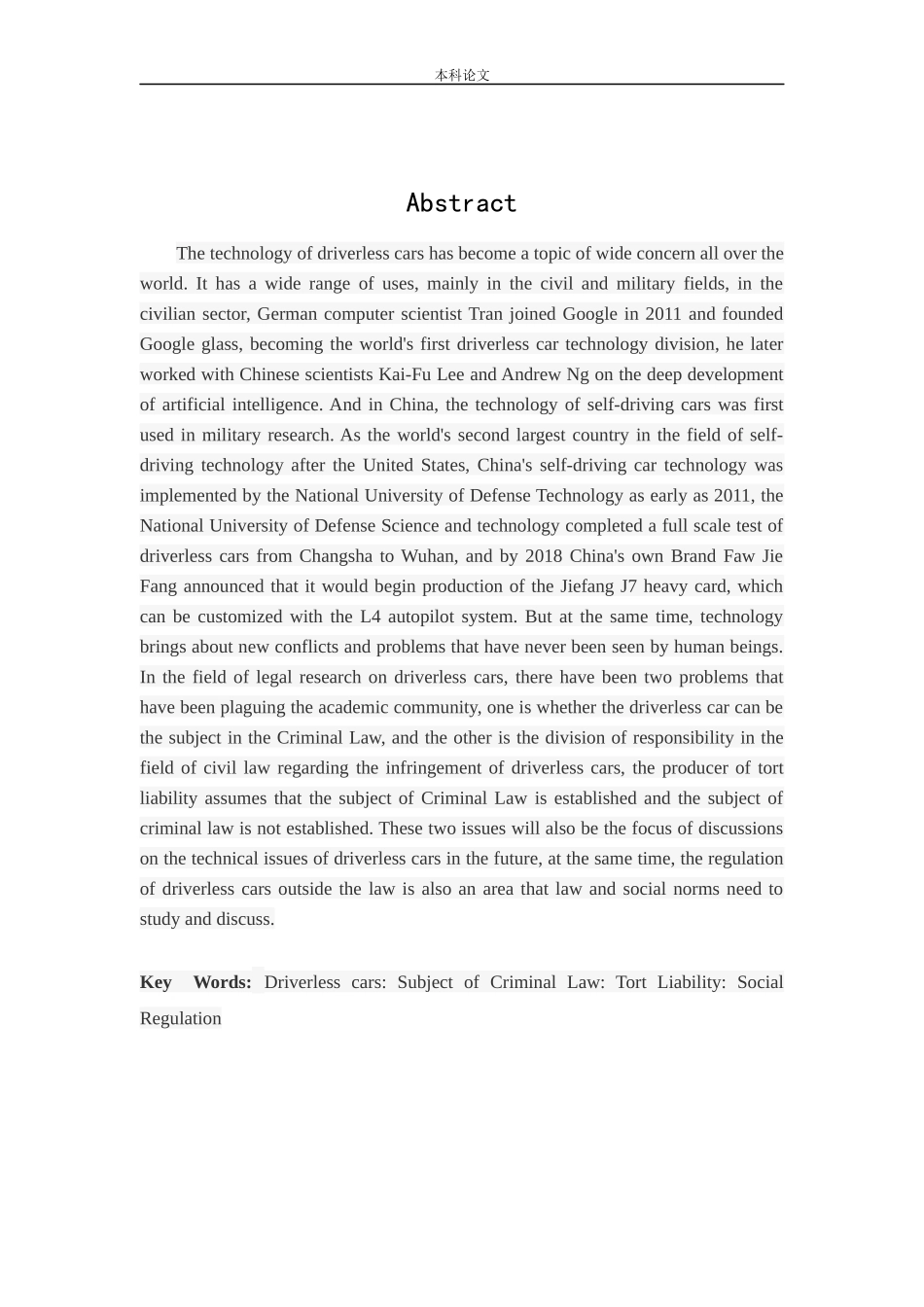本科论文AbstractThe technology of driverless cars has become a topic of wide concern all over the world. It has a wide range of uses, mainly in the civil and military fields, in the civilian sector, German computer scientist Tran joined Google in 2011 and founded Google glass, becoming the world's first driverless car technology division, he later worked with Chinese scientists Kai-Fu Lee and Andrew Ng on the deep development of artificial intelligence. And in China, the technology of self-driving cars was first used in military research. As the world's second largest country in the field of self-driving technology after the United States, China's self-driving car technology was implemented by the National University of Defense Technology as early as 2011, the National University of Defense Science and technology completed a full scale test of driverless cars from Changsha to Wuhan, and by 2018 China's own Brand Faw Jie Fang announced that it would begin production of the Jiefang J7 heavy card, which can be customized with the L4 autopilot system. But at the same time, technology brings about new conflicts and problems that have never been seen by human beings. In the field of legal research on driverless cars, there have been two problems that have been plaguing the academic community, one is whether the driverless car can be the subject in the Criminal Law, and the other is the division of responsibility in the field of civil law regarding the infringement of driverless cars, the producer of tort liability assumes that the subject of Criminal Law is established and the subject of criminal law is not established. These two issues will also be the focus of discussions on the technical iss...


